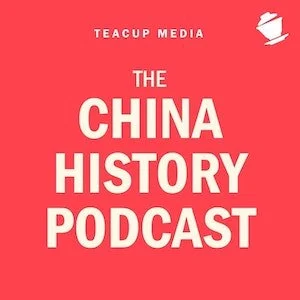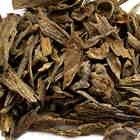Ep. 302 | Chinese Anarchists of the Late Qing
Thanks to Leigh for the inspiration to cover this sidebar to all the history happening during the end of the Qing and early Republic. This episode examines the lives of these late-Qing intellectuals who went to Paris, Tokyo, and other places to study alternative political systems that might be a good fit for China.
Though anarchism works great only in theory, it was still an ideal these intellectuals aspired to. They sought to create a harmonious society where the people weren't persecuted or exploited by an oppressive government. The CCP ended up cherry-picking a few of these ideas that these anarchists wrote about in their journals and publications. These anarchists were the OG's of socialism and communism.
Listen On Your Favorite Podcast Player
Terms in Episode
| Pinyin/Term | Chinese | English/Meaning |
|---|---|---|
| Liú Shīfù | 刘师复 | 1884-1915, Also known as Liú Sīfù 刘思复, a major figure in the Chinese Anarchist movement |
| Qīng Dynasty | 清朝 | China's final imperial dynasty that lasted 1633-1912. |
| Cài Yuánpéi | 蔡元培 | 1868-1940, Chinese philosopher, politician and educator. Also served as president of Peking University at a key time in history and founded the Academia Sinica |
| Lǐ Hóngzhāng | 李鸿章 | 1823-1901, a giant in late Qing history. Li was a politician, diplomat military leader and Viceroy of Zhili, Huguang and Liangguang |
| Treaty of Shimonoseki | 下关条约 | The treaty that ended the First Sino-Japanese War, signed in 1895. It was a major defeat for China and a clear victory for Japan |
| Zhou Dynasty | 周朝 | Ancient Chinese dyansty that lasted 1046 to 256 BC. The Western Zhou ended 771 BC and the Eastern Zhou, till 256 BC. The Eastern Zhou was divided up into the Spring and Autumn and Warring States Periods. |
| Huáxià | 华夏 | Huaxia was a historical concept representing the Chinese nation united with a common cultural ancestry |
| Mèngzǐ | 孟子 | 372-289 BC, Chinese Confucian philospher, known as The Second Sage |
| Wú zhèngfǔ zhǔyì | 无政府主义 | Anarchism |
| Xīnhài Revolution | 辛亥革命 | Also called the 1911 Revolution. It began in Wuchang, Hubei and spread throughout the country and brought an end to the Qing Dyansty |
| Hēi Wǔ lèi | 黑五类 | The Five "Black Categories" Landlords, Rich Peasants, Counter-revolutionaries, Bad influencers and Right wingers. |
| Zhāng Jì | 张继 | 1882-1947, Chinese anarchist and revolutionary who became a leading member of the right-wing faction of the Kuomintang. |
| Kōtoku Shūsui | 幸徳 秋水 | 1871-1911, Japanese socialist and anarchist who played a leading role in introducing anarchism to Japan in the early 20th century. |
| Zhāng Bǐnglín | 章炳麟 | 1869-1936, Qing era scholar, philospoher, etymologist and revolutionary |
| Liú Shīpéi | 刘师培 | 1884-1919, Chinese anarchist, philologist and major figure in the Japan Group of anarchistrs. He was married to He Zhen |
| Hé Zhèn | 何震 | 1884-1920, also known as Hé Yīn Zhèn 何殷震, another major figure in the Tokyo Group of anarchists and especially in the early feminist movement |
| Tóngménghuì | 同盟会 | The Revolutionary Alliance, a secret society and underground resistance movement founded by Sun Yat-sen, Song Jiaoren, and others in Tokyo, Japan, on 20 August 1905.[1][2] It was formed from the merger of multiple Chinese revolutionary groups in the late Qing dynasty. It later became known as The Kuomintang |
| Liáng Qǐchāo | 梁启超 | 1873-1929, Chinese politician, social and political activist, journalist and leading intellectuyal of his time. He was also an important protege of Kang Youwei |
| Tiānyì Bào | 天义报 | Natural Justice, the journal produced by the Tokyo Group, led by He Zhen and Liu Shipei |
| Huáng Liáng Měi Mèng | 黄粱美梦 | A Chinese Sayings referring to anything that is a pipe dream or lost cause |
| Lǎozǐ | 老子 | Also known as Lao Tzu, an ancient philospher who is called the author of the Tao te Ching (Daodejing). Also called the founder of Daoism |
| Zhuāngzǐ | 庄子 | Also known by his name Zhuang Zhou, and for his book "The Zhuangzi". He lived sometime around the 4th century BC |
| Dào | 道 | Difficult to translate this term. Also known as The Tao. The Way. |
| Wú Wéi | 无为 | Doing by not doing, accomplishing objectives by using the Dao and achieving your aims byt allowing them to happen naturally, without doing |
| Tiān Gāo Huángdì yuán | 天高皇帝远 | The old saying "Heaven is high and the emperor is far away", meaning, what went on far away in the capital didn't affect them |
| Duānfāng | 端方 | 1861-1911, high ranking Qing Dynasty official |
| Lǐ Shízēng | 李石曾 | 1881-1973, major anarchist in the early 20th century, also a member of The Paris Group of Anarchists. Li also helped with the "Diligent Work-Frugal Study programs that brought Chinese youth to Franbce to study and work and get exposure to the world |
| Sì Jiù | 四旧 | The Four Olds Campaign…Getting rid of Old Ideas, Culture, Customs and Habits |
| Zhāng Rénjié | 张人杰 | 1877-1950, also known as Zhang Jingjiang 张静江. A major political figure and early backer of Sun Yat-sen's revolutionary movement. Zhang was also a successful entrepreneur and fiugure in the French Group of anarchists |
| Zhāng Jìngjiāng | 张静江 | See above Zhang Renjie |
| Wú Zhìhuī | 吴稚晖 | 1865-1953, Chinese linguist and philosopher who was the chairman of the 1912–13 Commission on the Unification of Pronunciation that created Zhuyin (based on Zhang Binglin's work) and standardized Guoyu pronunciation. Wu became an anarchist during his stay in France in the first decade of the 20th century, along with Li Shizeng, Zhang Renjie, and Cai Yuanpei. With them, he was known as one of the strongly anti-communist "Four Elders" of the Nationalist Party in the 1920s. |
| Lǐ Dàzhāo | 李大钊 | 1889-1927, Chinese intellectual and revolutionary as well as a founding member of the Chinese Communist Party. Also served as the head librarian at Peking University |
| Chén Dúxiù | 陈独秀 | 1879-1942, Chinese revolutionary and co-founder of the Chinese Communist Party, servinf as 1st geberal secretary |
| Zhōu Ēnlái | 周恩来 | 1898-1976, China's first premier and one of the most important political fiugures of the 20th century |
| Dèng Xiǎopíng | 邓小平 | 1904-1997, one of the greatest Chinese political leaders of the 20th century. He was a revolutionary, military man, statesman who took over after Mao Zedong's death and set China on a more orderly path of world greatness |
| Niè Róngzhēn | 聂荣臻 | 1989-1992, major Communist military leader and one of the Ten Marshal's of the PLA |
| Chén Yì | 陈毅 | 1901-1972, a Chinese Communist military commander and later politician and foreign minister of the PRC |
| Lǐ Fùchūn | 李富春 | 1900-1975, another Chinese Communist revolutionary, military man, politician and served as a Vice Premier for many years |
| Shìjiè Shè | 世界社 | World Society, formed by Cài Yuánpéi and the other members of the Paris Group. This became the main vehicle for the the group’s output of essays and articles. |
| Xīn Shìjì | 新世纪 | "New Century", the name of the journal produced by The Paris Group |
| Dòufu | 豆腐 | Tofu or "La Fromage Chinoise" as the French back then called it….Chinese cheese |
| Xiāngshān | 香山 | A town in southern Guangdoing just outside of Zhōngshān on the west side of the Pearl River Delta |
| Lǐ Zhǔn | 李准 | Qing military man who was in charge of the Qing forces that had time and again suppressed all these anti-Qing uprisings in the south of China |
| Zhīnà Ànshā tuán | 支那暗殺團 | China (or Chinese) Assassination Corps |
| Wǔchāng Uprising | 武昌起义 | An uprising that happened on October 10, 1911 that served as the beginning of the Xinhai Revolution |
| Huìmíng Xuéshè | 晦鸣学社 | The Cock Crowing Society, created by the anarchist Liu Shifu |
| Mínshēng | 民声 | "The People’s Voice", the journal produced by Liu Shifu |
| Yuán Shìkǎi | 袁世凯 | 1859-1916, Chinese military and government official during the late Qing and early years of the ROC. Served as president from and attempted to become emperor in 1916 |
| Wúzhèngfǔ-Gòngchǎnzhǔyì Tóngzhì Shè | 无政府-共产主义同志社 | The Society of Anarcho-Communist Comrades |
| Xīhú Scenic Area | 杭州西湖风景名胜区 | One of the many scenic spots surrounding West Lake in Hangzhou |
| Xúnzǐ | 荀子 | Full name Xun Kuang, lived sometime around 310-238 BC, known as Master Xun, a Confucian philosopher. After Confucius and Mengzi, Xunzi is considered the third great Confucian philospher |
| Shāng Yāng | 商鞅 | 390-338 BC, a major figure of the Qin State as a jurist, Legalist philospher and politician |
| Hán Fēi | 韩非 | 280-233, another major figure during the Warring States Period, serving as a stateman, official and Legalist philospher. |
| Wāng Jīngwèi | 汪精卫 | 1883-1944, Chinese politician, head of the left wing of the KMT and vilified later on in history for his collaboration with the Japanese occupiers during the Second Sino-Japanese War |
| Chǔ Mínyì | 褚民誼 | 1884-1946, major revolutionary and political figure of the early Nationalist government |

















his all took place in the final moments of the Warlord Era, right after the Central Plains War. This act perpetrated by warlord Sun Dianying 孙殿英 epitomized the venality of these men.